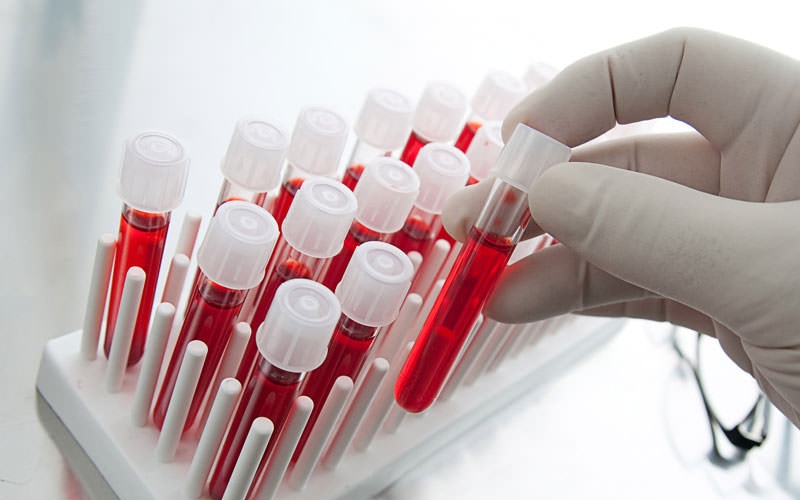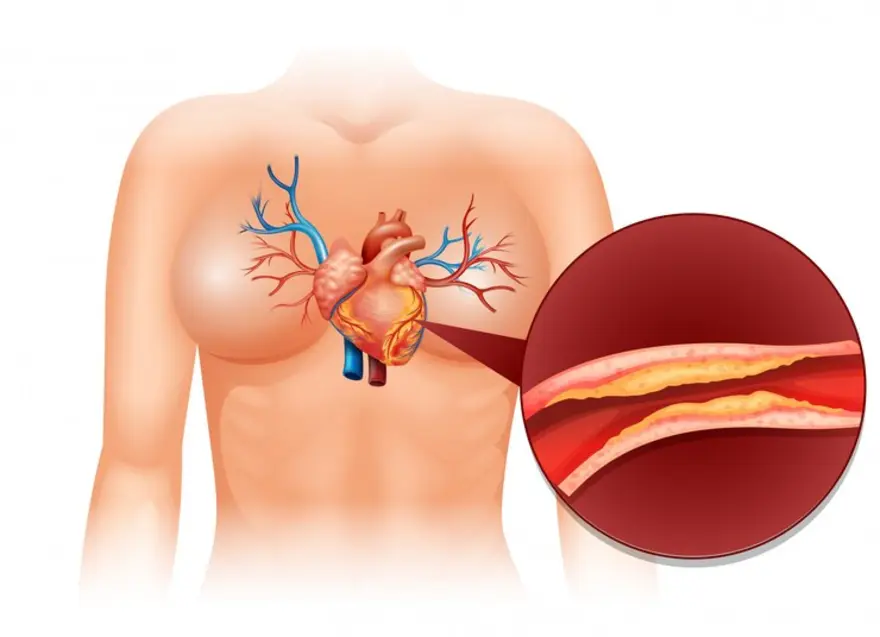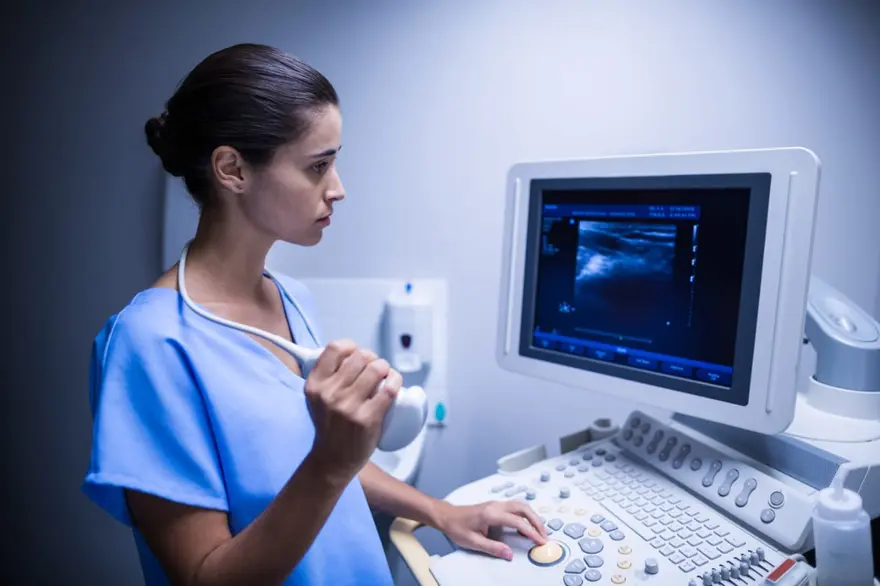Preventive Healthcare
149 STEPS THAT GIVES 100% ACCURACY
24564 Views
0

A simple blood test is never so simple. Every time you go under the needle for a blood test, have you ever wondered how your blood gets tested? We see anxious patients lined up to give their samples and see a relief when the process is done. But do you know what happens to that sample? How can you be assured that the sample has been tested using the right SOPs and that the lab is adhering to global standards. Welcome to the sample journey to understand how an accurate report is produced.
BLOOD COLLECTION
The true mark of a laboratory that cares is the one that adopts global practices during sample collection, giving the customer a hassle free experience. Sample collection needs to be efficient and effortless and can only be perfected with practice. Most of our phlebotomists have over 10 years of experience. Our Phlebotomists are well skilled and trained in collecting samples from babies, kids, patients who are hospitalised and frail or elderly patients.
Some steps in phlebotomy that are followed only by specialists
Before sample collection, the puncture site is cleaned with a disinfectant and is allowed to dry completely before needle is entered. Puncture site should not be touched after disinfection. Failing to let alcohol or disinfectant dry before sample collection can affect a test result. The vein should be visible without the application of a tourniquet and tourniquet should always be applied 4-5 finger widths above the puncture site. Tourniquet should be released before needle is withdrawn. Prolonged application of a tourniquet during blood collection can result in a blood sample with a falsely elevated total protein. After sample collection the needle is withdrawn gently and gentle pressure applied to the site with a clean gauze or dry cotton-wool ball. Patient is advised to hold the gauze with their arms extended. Bending the arm could cause a hematoma (clot)
Contaminated Tourniquets are a potential source of methicillin-resistant Staphylococcus aureus (MRSA). To avoid this, at Metropolis we apply a fresh piece of sanitised tissue on the patients skin before applying a tourniquet.
STORAGE & TRANSPORTATION
At times,a sample needs to be taken to the central laboratory for processing and testing. This is seen in case of specialised and super specialised tests. Different samples have different requirements for transportation and at Metropolis, through years of experience, we have a built a SOP that has been adapted for the Indian conditions.
The most labile analytes like Ammonia, Semen and Bicarbonate are collected only at the main processing laboratory. Any other collected sample is not accepted. Other labile analytes like PTH, ACTH and HIV-RNA are transported in dry ice. All the regular samples are transported in cool gel packs in a temperature controlled thermocol box. In addition to temperature control, some analytes require protection from light to ensure specimen integrity. Tests like Bilirubin, Vitamin A and Vitamin E require samples to be transported in a light controlled environment.
SAMPLE REGISTRATION
Accurate demographics for accurate results
About 10% of laboratory errors could be attributed to incorrect entry of patient details like gender, age, name, SID, PID etc. At Metropolis, we employ a dedicated and trained data entry team to perform accessioning and ensure error free sample demographics.
SAMPLE LABELLING
Assurance of barcoding
As soon as accessioning is done, specific bar code for the patient’s sample is generated, which carries SID (Sample identification number) information. The software generates appropriate number of bar codes for each patient depending on the variety of containers required. The bar code label also contains patient’s name, date and time of collection, name of tests and type of container. The system ensures zero chance of wrong labelling.
SAMPLE PROCESSING
Sample treatment for highest standards
Processing a specimen may include mixing the specimen to ensure that all the components are evenly distributed throughout the sample or spinning the specimen in a centrifuge to separate the serum/plasma layer from the red cells. Serum or plasma in contact with RBC over a prolong period of time may result in haemolysis. Additionally at room temperature, serum/plasma is separated within 30 minutes and should not exceed two hours. Critical or labile samples like semen or ESR and sent for analysis immediately.
SAMPLE TESTING
The best of Manual Testing and Automation
Many tests need to be performed manually with the help of right devices and chemicals. At Metropolis, best of our scientific team work on these manual tests as they are time consuming, intricate and demands the attention of experienced hands and eyes. Some of the tests are automated and we use US FDA approved technology and machines. In addition, all reagents that we use for testing are imported to ensure best quality and pinpoint precision.
SAMPLE RECHECKING
Reflex Testing for pinpoint accuracy
Metropolis offers reflex testing, in which additional testing will be performed on specimens depending on the results of the initial test. The additional tests are performed based on the Pathologist’s recommendation and the customer is not billed for any extra testing. There are two types of reflex panels: standard reflex test panels and compulsory reflex test panels. A standard reflex test panel allows the physician the option of ordering either the reflex test group or a single test. A compulsory reflex test panel automatically generates a request for additional testing if the result of the initial test meets or falls outside certain ranges. In many cases and especially in infectious diseases compulsory reflex test panels have been predetermined based on specific medical criteria accepted as standard-of-care by the medical community. Through our 30 year experience, we have also built a Unique Reference Range for the Indian audience for various tests. This is a practice that is only followed at Metropolis.
REPORTING
100% Accurate Results and Globally accepted reports
A separate Report Section team is responsible for report generation.Automatic “All reports mode” ensures that reports have undergone three levels of authorization before they are printed. The physical copies carry patient’s demographics in detail, reference details, test information, results of analysis and digital signature of the pathologist who has finally authorized the report. For all emergency reports, your doctor is notified immediately through an SMS. An email copy of the report is sent to the patient and the patient’s doctor that eliminates the need to carry physical copies.
Conclusion
At Metropolis, every sample undergoes a rigorous 149 steps before the report is produced. Through a 3 decade experience, we have built SOPs that account for each possibility of error. Automation in various sections of the lab has helped us eliminate a margin of error. Our processes give us the confidence of providing our customers with Error Free Diagnosis thereby enabling them to reveal their inner health. We are Metropolis. The Pathology Specialists.
 Home Visit
Home Visit Upload
Upload














1701259759.webp)









 WhatsApp
WhatsApp